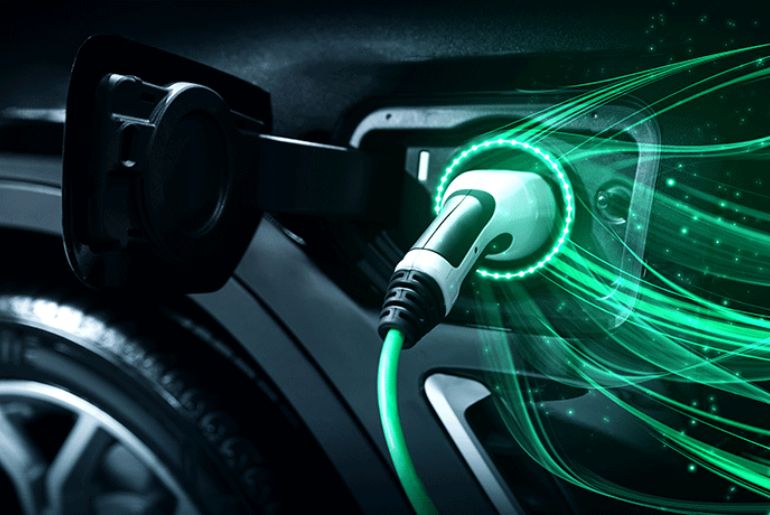India is experiencing a remarkable shift towards electric vehicles (EVs), spearheaded by environmental concerns, policies of the government, and enhanced technology.
In the midst of this revolution stands the development of a robust EV charging infrastructure. Indian startups are spearheading this revolution with innovative solutions to tackle the inconvenience of embracing EVs.
The EV Landscape in India
The Indian government has been keen on embracing EVs and is aiming to have 30% of new car sales be electric by 2030. There are a number of laws and incentives in place to make sure that this is achieved:
FAME India Scheme:
The Faster Adoption and Manufacturing of Hybrid and Electric Vehicles (FAME) scheme provides subsidies for electric vehicles and charging infrastructure.
State-Level Policies:
The EV laws of states that provide incentives to EV consumers and charging station installers are Tamil Nadu, Maharashtra, and Delhi.
Charging Infrastructure Guidelines:
Guidelines have been issued by the Ministry of Power to make charging stations for EVs accessible, safe, and economic.
The EV’s charging infrastructure remains limited despite all this, presenting an opportunity for businesses to establish and fill the gap.
Challenges in EV Charging Infrastructure
Several challenges hinder the widespread adoption of EVs in India:
Few Public Charging Points:
There are too few public charging points, particularly in rural and semi-urban areas.
Range Anxiety:
The restricted range of EVs and the distance of charging points are issues for possible EV consumers.
High Installation Costs:
The vast majority of potential operators are put off by the enormous expense of installing charging points.
Reliability of the Grid:
Reliability of charging points is impacted by intermittent power supplies in some areas.
Startup Innovations in EV Charging
Indian startups are addressing these challenges through various innovative approaches:
1. Battery Swapping Models
Battery swapping allows EV users to replace depleted batteries with fully charged ones at designated stations. This model reduces charging time and addresses range anxiety.
Yulu: With presence in cities like Bengaluru and Delhi, Yulu offers AI-driven battery-as-a-service through its Yuma Energy battery swapping stations.
Gogoro: In partnership with Zypp Electric, Gogoro has initiated battery-swapping pilots in Delhi with the vision to build a networked swapping network.
2. Smart Charging Solutions
Startups are developing intelligent charging solutions that optimize energy usage and provide real-time data to users.
Statiq: Provides a platform for pre-booking and payment, linking EV users to local charging stations. Statiq’s network includes commercial complexes, offices, and residential complexes.
EVRE: With offices in Hyderabad and Bengaluru, EVRE serves a large number of customers, including fleet operators, by installing numerous charging points in major cities.
3. Portable Charging Solutions
Startups are creating portable charging devices to meet the lack of charging infrastructure in rural areas.
Quintinno Labs is a clean-tech startup firm that is creating portable energy storage and charging devices that function as four-wheeler EV power banks.
4. Peer-to-Peer Charging Networks
Innovative models are emerging where individuals and businesses can share their private charging stations with others.
Bolt.Earth: Operating as India’s largest EV charging network, Bolt.Earth has over 37,000 charging points across more than 1,700 cities, supporting a peer-to-peer model.
Bolt Earth
Government Support and Policies
The Indian government recognizes the importance of startups in building the EV ecosystem and has introduced several measures to support them:
Easy Licensing:
According to the Ministry of Power, charging EVs is a service and need not be licensed under the Electricity Act.
Financial Incentives:
Plans like FAME give financial incentives towards the deployment of charging stations.
Public-commercial Partnerships:
Governments and commercial stakeholders are called upon to partner and increase charging points.
Investment Trends
The EV charging sector in India is attracting significant investment:
In 128 rounds of fundraising over the last five years, entrepreneurs in the charging infrastructure sector have raised over $511 million. Mobility Prospects
GreenLine Mobility Solutions, a unit of India’s Essar Group, invested $275 million towards decarbonizing the country’s heavy trucking fleet and adding EV charging stations.
The Road Ahead
While significant progress has been made, further efforts are needed to achieve comprehensive EV charging coverage:
Standardization: Creating uniform procedures for charging devices to make them compatible.
Grid Infrastructure: Strengthening the grid to accommodate the rising demand for electricity from EVs.
Awareness campaigns: dispelling myths and educating people about the advantages of EVs.
Incentivizing Rural Deployment: Offering extra incentives for the installation of charging points in rural areas is one way of encouraging rural deployment.
Developing the nation’s EV charging network is a mammoth task for Indian companies. They are working on the problems of EV uptake with new technologies such as peer-to-peer networks, smart charging, and battery swapping. These companies are poised to drive India to a clean and electric transportation age with additional government investment and support.

